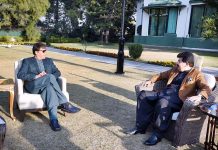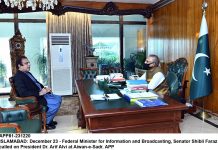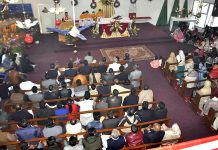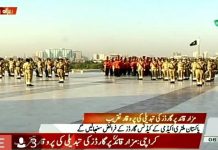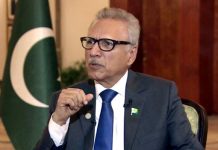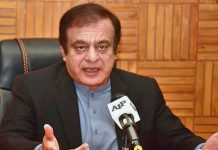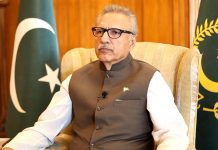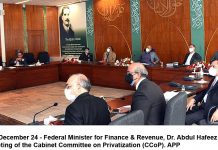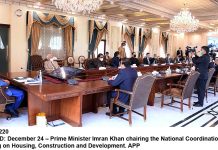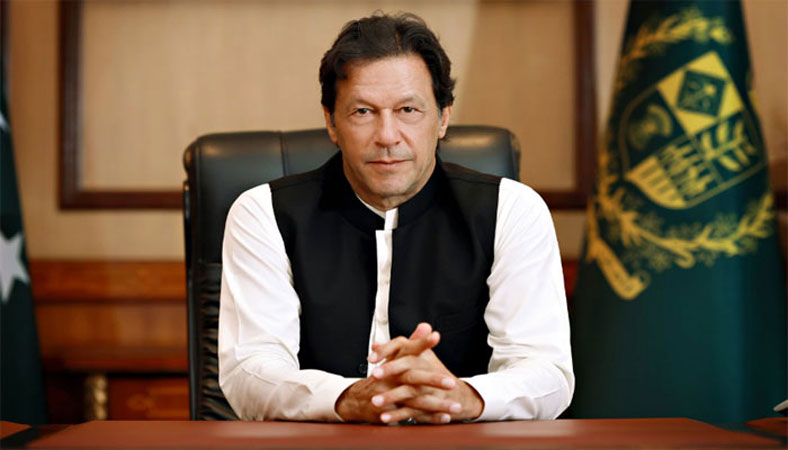
Those who were hurling baseless rigging allegations against the PTI-led government had not even filed complaints with the elections commission of Pakistan, he added. The prime minister maintained that he had made a sincere offer to probe the rigging allegations but the opposition failed to provide any evidence in support of their allegations.
He said that the former governments had taken record loans and brought the country to the verge of economic disaster. Despite the difficult situation, the government put the country on the path of economic growth, the prime minister added.
He said that the government was taking effective measures to control inflation and hike in prices of essential commodities. PM Imran claimed that the government will control inflation within a few days.
Earlier on October 14, Prime Minister Imran Khan had ruled out any chances of reconciliation with the opposition parties.
No matter what opposition staged sit-ins or protests, I’ll never give National Reconciliation Ordinance (NRO) to anyone, PM Khan had said while talking to Chairman Senate Standing Committee on Information Senator Faisal Javed Khan and Senator Zeeshan Khanzada who called on him in Islamabad.
The meeting had discussed the revival of the film and drama industry and the overall political situation of the country including oppositions’ protest.
Prime Minister Imran Khan also said Pakistan would continue to raise its voice “against Islamophobia and in support of mutual respect”.
In his reaction to Pakistan’s re-election to the United Nations Human Rights Council for a fifth time for a three-year term, the prime minister tweeted that Pakistan was committed to upholding human rights for all and would work towards “advancement of tolerance and constructive engagement”. He said that as an HRC member, Pakistan would also continue to “expose” the human rights violations by the Indian forces in occupied Kashmir.
He added that Pakistan will continue its efforts towards consensus building and ensuring that HRC’s work is “guided by principles of universality, impartiality, dialogue, and cooperation”.
Earlier, Foreign Minister Shah Mahmood Qureshi said that Pakistan’s re-election to the HRC has provided a unique opportunity for highlighting the Kashmir issue.
Speaking to the media, the foreign minister said that there was a communications blockade in the occupied valley while independent observers don’t have access to the region. “So, this is a forum that can become the voice [of the Kashmiris].”
Asked about Pakistan’s priorities as a member of the UN body, Qureshi said that there should be four priorities; the Kashmir issue, the rise of Islamophobia, “Muslim causes” and human rights.
Among the five candidates from the Asia-Pacific region vying for four seats, Pakistan secured the highest number of votes.
Pakistan has been serving on the council since January 2018. With Tuesday’s re-election, Pakistan will continue as a member for another three-year term commencing on Jan 1, 2021.
“The international community has once again reposed confidence in Pakistan, recognizing our contribution to the national and global human rights agenda and strong credentials as a consensus builder in the HRC,” said a statement issued by Pakistan’s Permanent Mission to the UN in New York.
“Pakistan remains firmly committed to upholding, promoting and safeguarding human rights and fundamental freedoms for all,” it added. Also, China, Russia, and Cuba also won seats on the UN’s premier human rights body despite opposition from activist groups over their abysmal human rights records, but another target, Saudi Arabia, lost.
Russia and Cuba were running unopposed, but China and Saudi Arabia were in a five-way race in the only contested race for seats on the council.

